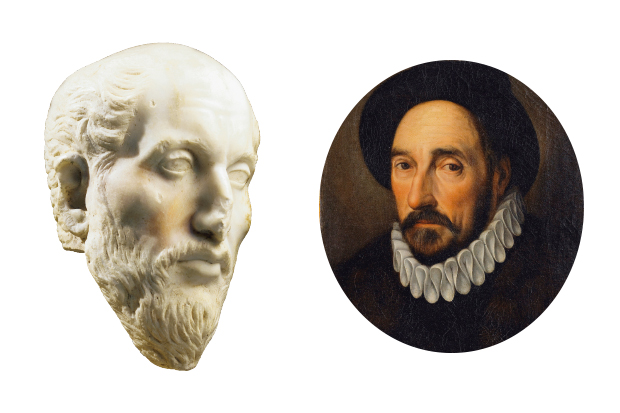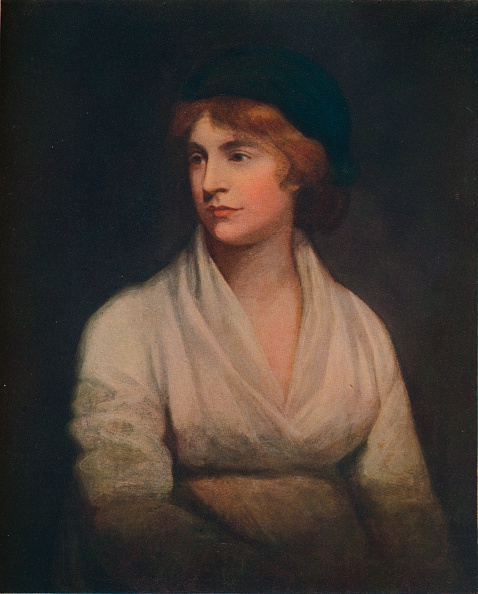T.S. Eliot liked to recall the time he was recognised by his London taxi driver. Surprised, he told the cabbie that poets weren’t often recognised. ‘I’ve an eye for celebrities,’ the driver replied. ‘I ’ad that Lord Russell in the back o’ the cab the other day. I said to ’im, “All right, then, Bertrand, so wossit all about?” And, you know what, ’e couldn’t tell me.’
I’ve always felt the story reflects well on the cabbie. While it may have been asking too much of Bertrand Russell to condense his philosophy into the length of a taxi journey, he surely ought to have been able to say something useful.
George Steiner is a public intellectual almost of Russell’s stature. Born in Paris to Viennese Jewish parents, he was taken to New York as a child in 1940, a month before the fall of France. Fluent from childhood in English, French and German, he was also taught by his father to read the Iliad in Greek at the age of six. In a transatlantic career as an academic, novelist and critic, he has left his elegant spoor on virtually every discipline, from music to theology, from philosophy to architecture. Who better, you might think, to write about the ‘idea of Europe’?
This is a very slim volume, with its origins in a lecture. As you’d expect, it is erudite and cosmopolitan. Steiner ranges across vast expanses of European thought: Plotinus and Montaigne and Erasmus and Spinoza and Heidegger. He does his readers the courtesy of treating them as his intellectual equals, leaving his many German quotations in the original. The result is — again, as you’d expect — some fine prose:
In one French town, a commemorative plaque to Lamartine, most idyllic of poets, faces, on the opposite side of the street, an inscription which records the torture and execution of resistance fighters in 1944. Europe is the place where Goethe’s garden almost borders on Buchenwald, where the house of Corneille abuts on the marketplace in which Joan of Arc was hideously done to death.
There are lovely disquisitions here, on the nature of café culture, on the interplay between the Judaic and Hellenistic patrimonies that defined European civilisation, on the sheer mass of history (‘even a child in Europe bends under the weight of the past as he so often does under that of schoolbags far too crammed’).
There is also — one of Steiner’s lifelong themes — an examination of the anti-Semitism that was for so long part of the texture of Continental life (‘until it comes to explicit terms with the long prehistory of gas-ovens, many of the stars in our European firmament will continue to be yellow’). Yet, one can’t help wondering, with T.S. Eliot’s cabbie, where it’s all going.
Not that Steiner would mind. His whole shtick is that art is out to be, if not exactly purposeless, certainly lacking in practical application. High culture — the pursuit of knowledge and beauty for their own sake — is what makes us human, he believes. And he has a point. One thinks of Primo Levi recalling Dante to give himself the courage to survive Auschwitz, or Aleksander Wat feeling he could endure Stalin’s Lubyanka after hearing, on the spring breeze, a fragment of Bach’s St Matthew Passion.
Steiner argues that mankind is ennobled by three ‘radiantly useless’ pursuits: music, mathematics and speculative thought (in which he includes poetry). These three transcendent activities reached their pinnacle in Europe — and, indeed, can in some senses be said to inhabit one another. ‘When God sings to Himself, He sings algebra,’ as Leibniz said.
It would almost insult the author to seek a political argument here. I might, for example, point to his observation that a European civilisation defined by coffeehouses excludes Britain and Ireland. But this would be to lower to the tone. (Steiner wouldn’t put it like that, of course: he’d say I was tarnishing the numinous with the gross, or the Platonic with the Aristotelian or some such.)
Still, after such an uplifting essay, the conclusion is oddly bathetic. Steiner reiterates that we should elevate ‘the pursuit of disinterested knowledge’ over ‘making money and flooding our lives with increasingly trivialised material goods’. Which is fine as far as it goes, but is an argument that has been made in every generation since classical times. He adds — and this is the closest he comes to a practical suggestion — that we should pay academics more, so as to staunch the flow of talent across the Atlantic.
I suppose it’s a reminder of why we shouldn’t expect brilliant and original men to be equally brilliant and original in every field. The whole point of Steiner’s thought is that it needs no practical application. Wossit all about? ’E couldn’t tell me.
Got something to add? Join the discussion and comment below.
Get 10 issues for just $10
Subscribe to The Spectator Australia today for the next 10 magazine issues, plus full online access, for just $10.
You might disagree with half of it, but you’ll enjoy reading all of it. Try your first month for free, then just $2 a week for the remainder of your first year.














Comments
Don't miss out
Join the conversation with other Spectator Australia readers. Subscribe to leave a comment.
SUBSCRIBEAlready a subscriber? Log in